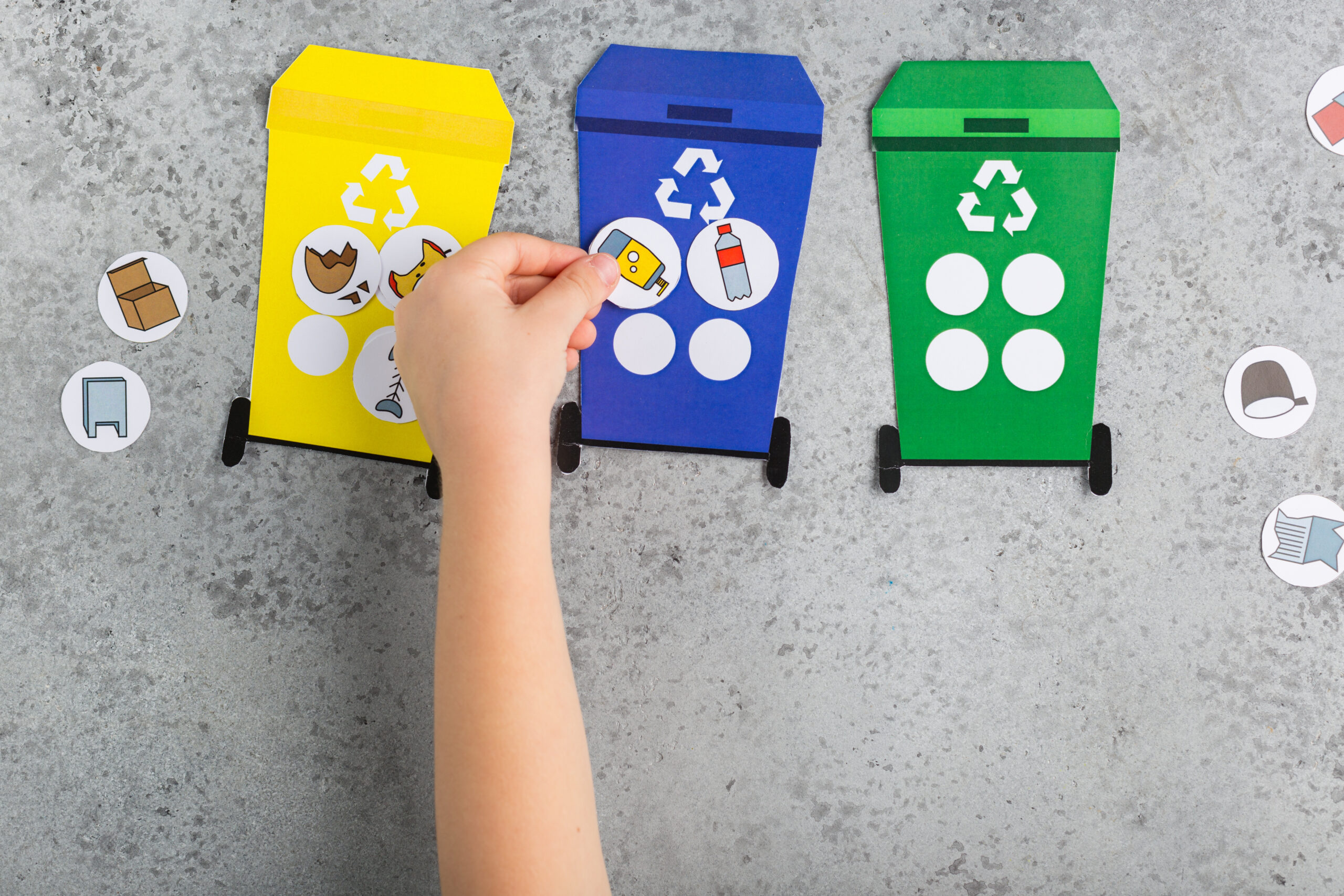
© Adobe Stock, Angelina Zinovieva
Reducing and recycling waste is everyone’s responsibility. Education at school on reducing, reusing and recycling can help young people understand their role in protecting the environment. To model this, and reduce your schools waste generation, a strong waste management plan is essential. Strategic selection and placement of bins will ensure the plan succeeds.
Read the Term 4 edition of School News HERE
Recycling Bins
Recycling bins are the frontline in diverting waste from landfills. To encourage use, place recycling bins in high-traffic areas such as hallways or play areas, as well as near the canteen or tuck shop.
You can further encourage eco-conscious behaviours through recycling drives, reward programs and collaborations with local businesses.
Food Waste Bins
Minimising food waste is paramount to reducing landfill. Love Food Hate Waste New Zealand, an organisation committed to reducing food waste in Aotearoa, reports that several New Zealand schools have conducted food waste audits. In one primary school, the children from one class threw away 3.7 kg of food waste a day. This amounts to 18 kilograms a week or 180 kilograms a term.
Encourage students to place any food scraps or leftovers in a designated food waste bin and work alongside staff and tuck shop employees to ensure continuity throughout the school. Teaching students about composting and using food scraps for educational purposes, such as in school gardens, compost or worm farms, can turn food waste into a valuable learning opportunity.
Paper Bins
Unsurprisingly, schools are hotbeds of paper consumption, from worksheets and notebooks to administrative forms. Paper waste bins ensure that paper is collected and sorted for effective recycling, and should be accessible in all classrooms and staffrooms, as well, for example, beside photocopiers.
Students and staff should be encouraged to find multiple uses for paper, such as using both sides of the sheet or repurposing used paper for craft activities. Moving to digital documents where possible can also help alleviate paper waste.
General Waste Bins
Despite best efforts, there will always be some materials that cannot be reused or recycled and must be disposed of in general waste. To help ensure that the correct waste is placed in these bins, consider creating infographics that clearly show what can be placed in each bin. General waste bins should be strategically located to discourage contamination of recycling, paper, and food waste bins.
Beyond the bins
A great way to decrease your school’s waste generation is to stop rubbish from entering the school grounds. Encouraging students and families to not individually wrap food items, but instead opt for reuseable containers is a great first step. Students could also discuss with their parents and caregivers the types of food they enjoy in their lunchbox, to ensure food is eaten and not thrown away.
Taking a collective approach to waste management will help students, staff and the community think more carefully about where they put their rubbish. In time, this will translate to less waste in landfill, and better environmental outcomes.
A new report from the University of Auckland’s Our Voices Project asks young people what…
The government has opened a tender for new standardised assessment tests, leaving educators shocked and…
Early in her career, Kiri Turketo found inspiration in an unlikely source. In this Principal…
Real stories of dedication, challenges, and triumphs from educators in NZ. Part six comes from…
Is fast furniture impacting your school's environmental footprint? We explore eco-friendly solutions to reduce furniture…
A new report from the New Zealand Initiative argues we need a stronger and clearer…
This website uses cookies.